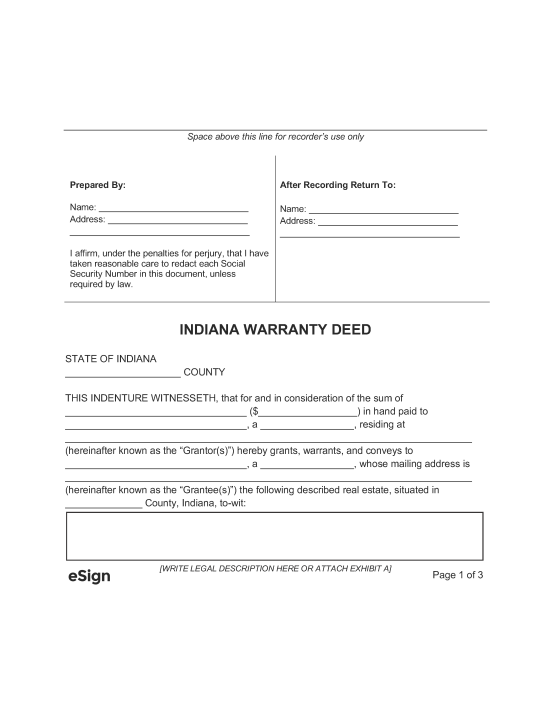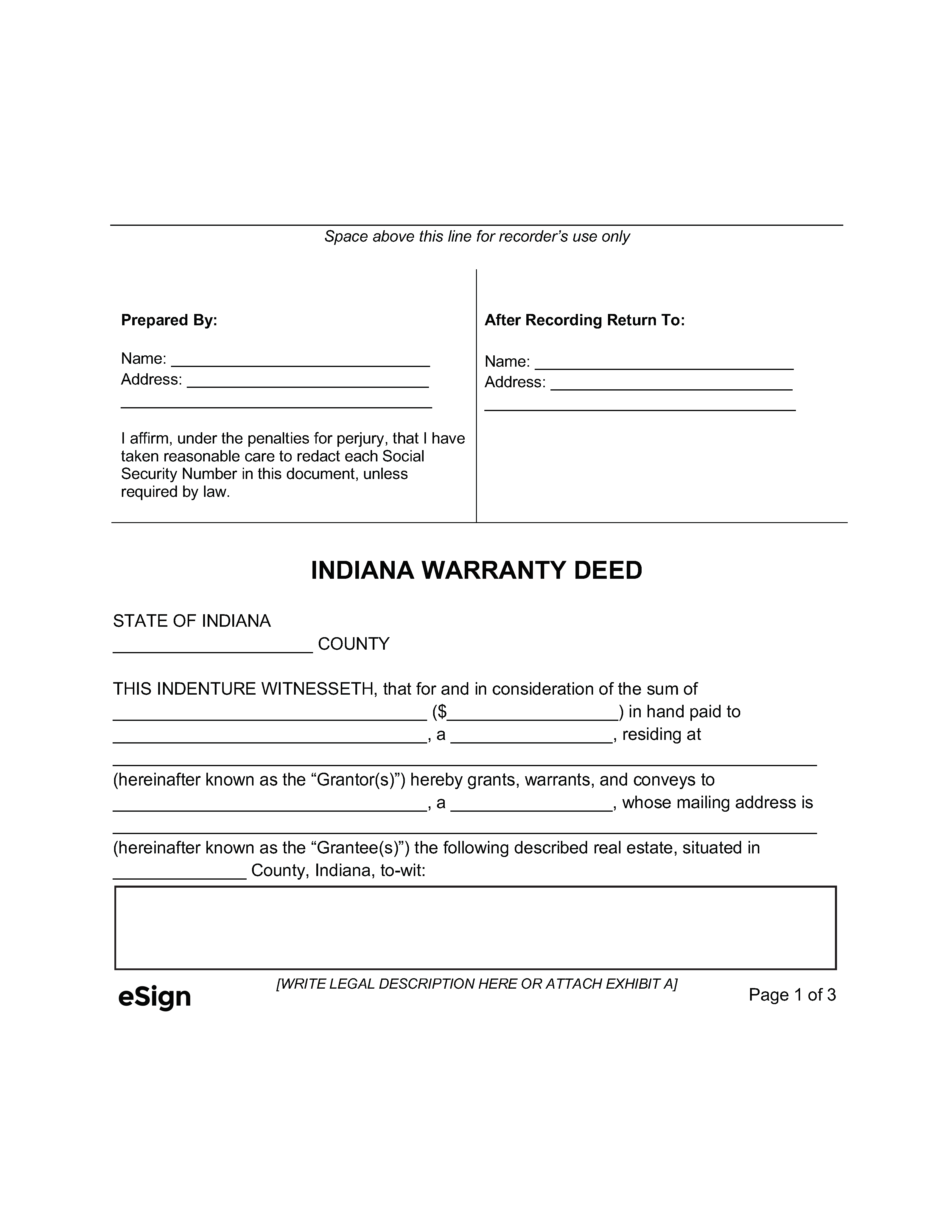How to Format
Layout
- Text must be printed in black ink and be at least 10 pt in size.[1]
- The deed must be on white paper and cannot exceed 8.5 inches by 14.5 inches in size.
- The first and last page must have top and bottom margins of 2 inches. All other sides and pages must have a margin of at least 0.5 inches.
Signatures
The deed must be signed by the grantor and notarized.[2]
Recording
Signed and notarized deed can be submitted to the County Recorder’s Office with a filing fee of $25 (at the time of this writing).[3]

